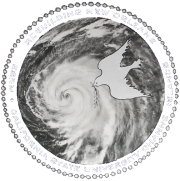Do you know what it means to miss New Orleans?
When you really get up close and deeply examine a topic from a scientific perspective, I have found that (along with the data collected) you establish a deep connection with that subject. And when that subject is a place, a connection can be felt to the whole environment; its plants, animals, people and culture. This is true about my time spent in New Orleans, Louisiana. The Crescent City has a certain romance to it. It has a vibe. The people who call it home are so passionate about their city by the river. The English Turn Forest that we crisscrossed with transect tape and spent so many hours breaking down to the last Sambucus canadensis is alive. When one is still and patient one can hear it breathe.
But the city is a beautiful disaster, a place of paradox and a place of dilemma. A common theme in the history of humanity is our futile attempts to dominate natural systems instead of constructing our existence in harmony with those processes. Southeastern Louisiana is a great example of our folly in this regard. There are those that would claim New Orleans should be abandoned, that it is not worth saving and we should move to higher ground. By this reasoning, should we relinquish our homes in California because an earthquake might bring them crumbling down around us, or because a fire might reduce them to ashes? We are so quick to judge those folks for living in a city beneath the sea. It will not be easy to save this forest or save this city. But just because something isn’t easy, just because something is unpopular, doesn’t mean we shouldn’t do it. The worst thing we can do is nothing at all.
As much as I have learned about New Orleans, about plants and snakes and music and food, I have learned even more about myself. There are a few moments that stick in my mind, but one was particularly moving. We planted a garden in Buras, on Carol Arsenoe’s property. Carol revealed that our spring visit was the most exciting time of the year for him. This man and his family, in a humble home by the river, was touched by what we did for him. In that moment I realized that the Service Learning trip that we had embarked upon was so much more than some field experience for ourselves to further our own education and career. It was a chance to contribute to something much bigger than ourselves. Where before I saw our garden as a small overall contribution, a tiny plot with a few peppers and corn and tomatoes, I knew then that for at least one man and his community, it meant the world. These folks in Louisiana love their home enough to return and rebuild even after losing everything. Their passion and tenacity is inspirational, and we owe them (at the very least) our respect.
What is the takeaway here? I have learned that as a student of Environmental Science and as a human being there is the potential to work for something greater than myself. I have learned that however easy it is to be cynical and pessimistic about our species and the choices we have made, the human spirit can still surprise you in a beautiful way– if only you can open your eyes and let it.








